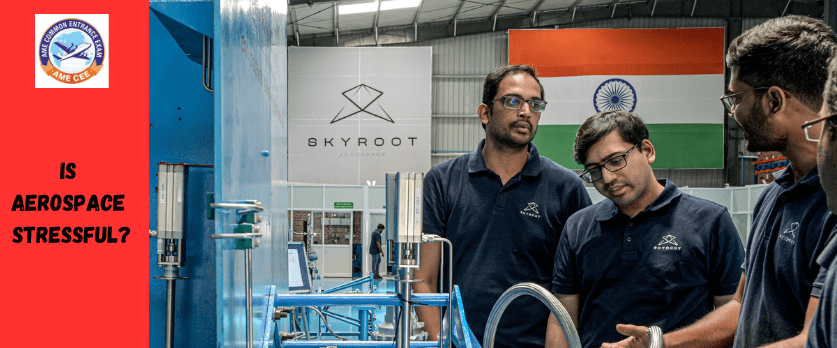The level of stress in the aerospace industry can vary depending on the specific job, role, and individual preferences. Here are some factors to consider:
High-Stakes Projects
Aerospace projects, especially those involving the design and manufacturing of aircraft or spacecraft, are often high-stakes endeavors. Precision and accuracy are crucial, and mistakes can have significant consequences. This pressure can contribute to stress.
Tight Deadlines
The aerospace industry is known for having tight deadlines, particularly in areas like aircraft manufacturing and space missions. Meeting project timelines is critical, and this can lead to high-pressure work environments.
Regulatory Compliance
Aerospace engineering professionals need to adhere to strict safety and regulatory standards. Ensuring compliance with these standards adds an extra layer of responsibility and can contribute to stress, as any oversight can have serious implications.
Research and Development Challenges
Engineers and scientists working on cutting-edge technologies and innovations may face challenges and uncertainties. Problem-solving in these situations can be intellectually demanding but also stressful.
Testing and Certification
Rigorous testing and certification processes are essential in the aerospace industry to guarantee the safety and reliability of aircraft and spacecraft. These processes can be time-consuming and require meticulous attention to detail, contributing to stress.
Work-Life Balance
The demand for timely project completion and the nature of the aerospace industry can sometimes impact work-life balance. Engineers and professionals may need to manage their time effectively to meet deadlines, potentially leading to stress.
Emergency Situations
Professionals in fields like air traffic control, aviation maintenance, and space mission control may encounter emergency situations. Handling emergencies with precision is critical, and the pressure in such situations can be stressful.
On the positive side, many individuals working in aerospace find the challenges and complexities of their roles to be stimulating and rewarding. The opportunity to contribute to groundbreaking projects, technological advancements, and space exploration can outweigh the stress for those passionate about the field.
Ultimately, stress levels can vary among individuals, and what one person finds stressful, another may find motivating. It’s important for individuals considering a career in aerospace to assess their own tolerance for pressure, problem-solving abilities, and passion for the industry to determine if it aligns with their personal preferences and coping mechanisms.
To become an aerospace engineer you may could join aerospace engineering through AME COMMON ENTRANCE EXAM (AME CEE) this examination you may join Aerospace Engineering approved by AICTE.


